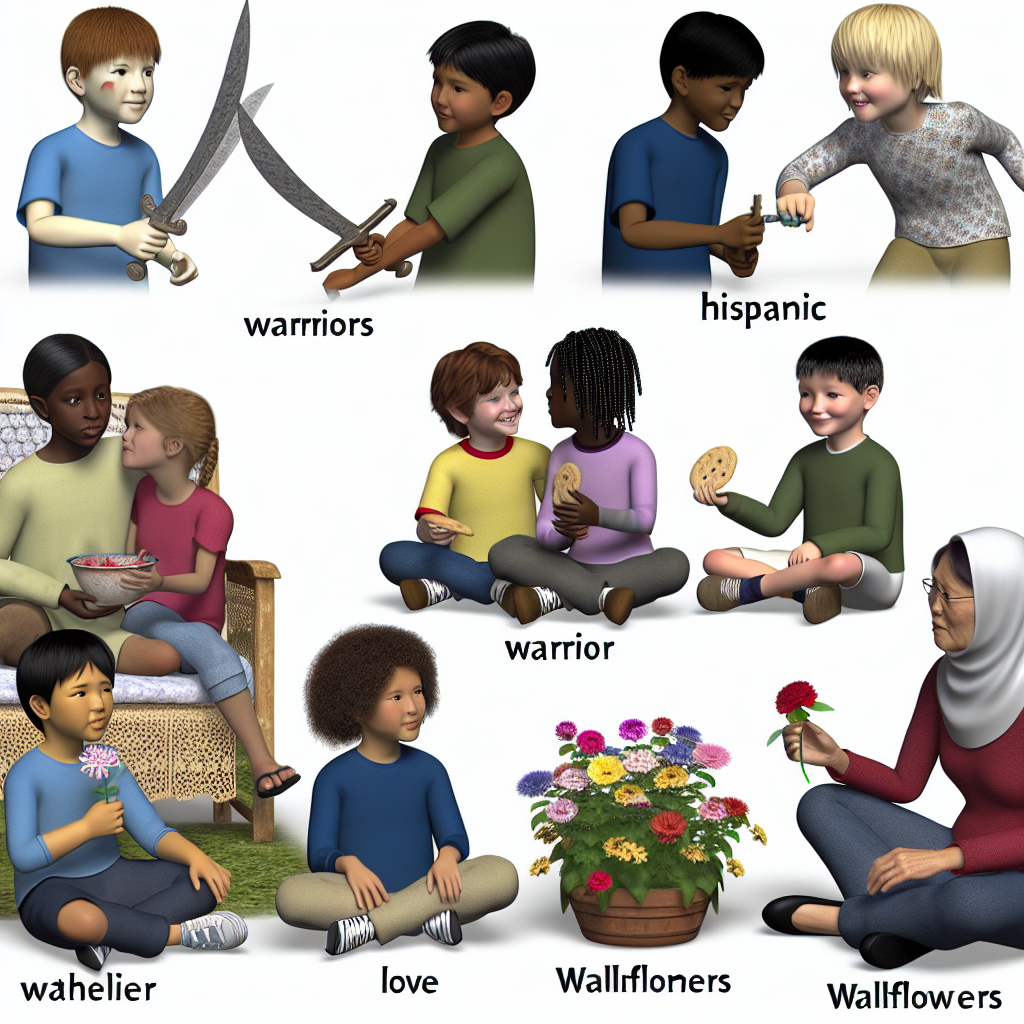Discovering the Spectrum of Different Types of Fatherly Love Through Parenting
Parenting is a journey that reveals new facets of love every day. Raising six children, each with their own personalities, needs, and dreams, has been the most profound lesson in understanding different types of fatherly love. From the bold warriors who take charge to the gentle wallflowers who watch and listen, every child requires a unique form of guidance and affection. This experience taught me that fatherly love isn’t a one-size-fits-all emotion; it is as diverse as the children we nurture. Embracing this diversity can transform not only our relationships but also deepen our capacity to connect with every child on a meaningful level.
Embracing Different Types of Fatherly Love: What Each Child Teaches Us
Parenting multiple children reveals that love must be tailored. Recognizing the distinct emotional needs of each child is essential to fostering their growth. Here’s how my six kids introduced me to a variety of love styles fatherhood demands.
The Warrior: Strength and Protection
One of my children naturally embodies strength and leadership — a true warrior. This type of child thrives on challenges, whether in sports, academics, or social situations. Different types of fatherly love for a warrior include:
– Encouragement to take risks safely
– Consistent reinforcement of boundaries
– Celebrating victories without escalating pressure
It’s vital to balance firm guidance with emotional support to help warriors channel their energy positively.
The Wallflower: Patience and Quiet Encouragement
Conversely, the wallflower child requires a gentler approach. Shy, observant, or introverted kids need a different type of fatherly love where patience and quiet encouragement rule:
– Providing safe spaces for self-expression
– Listening actively without rushing to solve problems
– Valuing small steps as significant growth
This nurturing style ensures wallflowers feel appreciated and understood without being overwhelmed.
How Different Types of Fatherly Love Shape Children’s Emotional Development
Understanding and practicing different types of fatherly love deeply influences children’s emotional well-being. Each approach cultivates distinct strengths and resilience.
Building Confidence Through Customized Support
Tailoring love according to your child’s personality helps build confidence by:
– Affirming their unique worth
– Encouraging independence at their own pace
– Offering constructive feedback in a way they comprehend
For example, warriors gain confidence facing challenges, while wallflowers become secure in their quiet nature.
Fostering Empathy and Communication
Different types of fatherly love also teach children about empathy by modeling respect for their individual differences. Children learn to:
– Identify their emotions and communicate effectively
– Respect others’ feelings and boundaries
– Develop healthy relationships based on mutual understanding
These skills benefit them socially and prepare them to handle life’s complexities.
Practical Strategies for Expressing Different Types of Fatherly Love Daily
Adapting your parenting style to meet your children’s needs doesn’t require grand gestures. Instead, practical daily actions make the biggest difference.
Active Listening and Validation
Taking the time to listen actively allows children to feel valued. Tips include:
– Put aside distractions during conversations
– Reflect what your child says to show understanding
– Avoid rushing to solutions; sometimes empathy is enough
This practice especially strengthens bonds with wallflower personalities.
Setting Clear Expectations and Encouraging Growth
Warriors benefit from clear structure and challenges. Implement:
– Defined routines and boundaries
– Goal-setting sessions together
– Acknowledge efforts as much as achievements
Consistent frameworks create security and motivate growth.
Balancing Individual Needs with Family Unity
While addressing different types of fatherly love individually is crucial, maintaining family cohesion is equally important.
Creating Shared Experiences
Incorporate activities that accommodate diverse interests:
– Family game nights with mixed dynamics
– Outdoor adventures to combine energy levels
– Group discussions to encourage everyone’s voice
Shared moments build a unified family identity beyond individual differences.
Respecting Differences Without Comparisons
Avoid comparing children to prevent feelings of inadequacy:
– Celebrate each child’s unique strengths
– Address conflicts with fairness and impartiality
– Encourage sibling support rather than rivalry
Fostering mutual respect strengthens sibling bonds.
The Lifelong Impact of Understanding Different Types of Fatherly Love
Recognizing and applying different types of fatherly love has lifelong benefits for both children and fathers.
Enhancing Father-Child Relationships
Customized love deepens trust and ongoing communication:
– Children feel safe sharing fears and successes
– Fathers witness authentic expressions of their children’s identities
– Relationships evolve into strong adult connections
This fulfillment enhances the father’s own emotional growth.
Raising Resilient, Compassionate Adults
Children raised with attuned love become adaptable and empathetic adults who:
– Navigate challenges with confidence
– Value diversity in themselves and others
– Build meaningful relationships
Understanding different types of fatherly love contributes to this transformation.
Key Takeaways and Next Steps for Fathers
Parenting multiple children offers rich lessons in love’s many forms. The journey to embrace different types of fatherly love requires openness, patience, and intentionality. Remember:
– No two children are the same; their need for love is unique
– Listening actively and adjusting your parenting style strengthens bonds
– Balancing individual attention with family unity fosters a supportive home
– Your engagement profoundly shapes your children’s emotional health
If you want to explore more parenting advice or share your experiences in embracing fatherly love’s diversity, visit khmuhtadin.com to connect. Embrace every child’s uniqueness and nurture the warrior and the wallflower alike—it’s the heart of meaningful fatherhood.
For additional insights on parenting strategies, consider resources such as the [American Psychological Association’s guide on father involvement](https://www.apa.org/topics/fatherhood).



